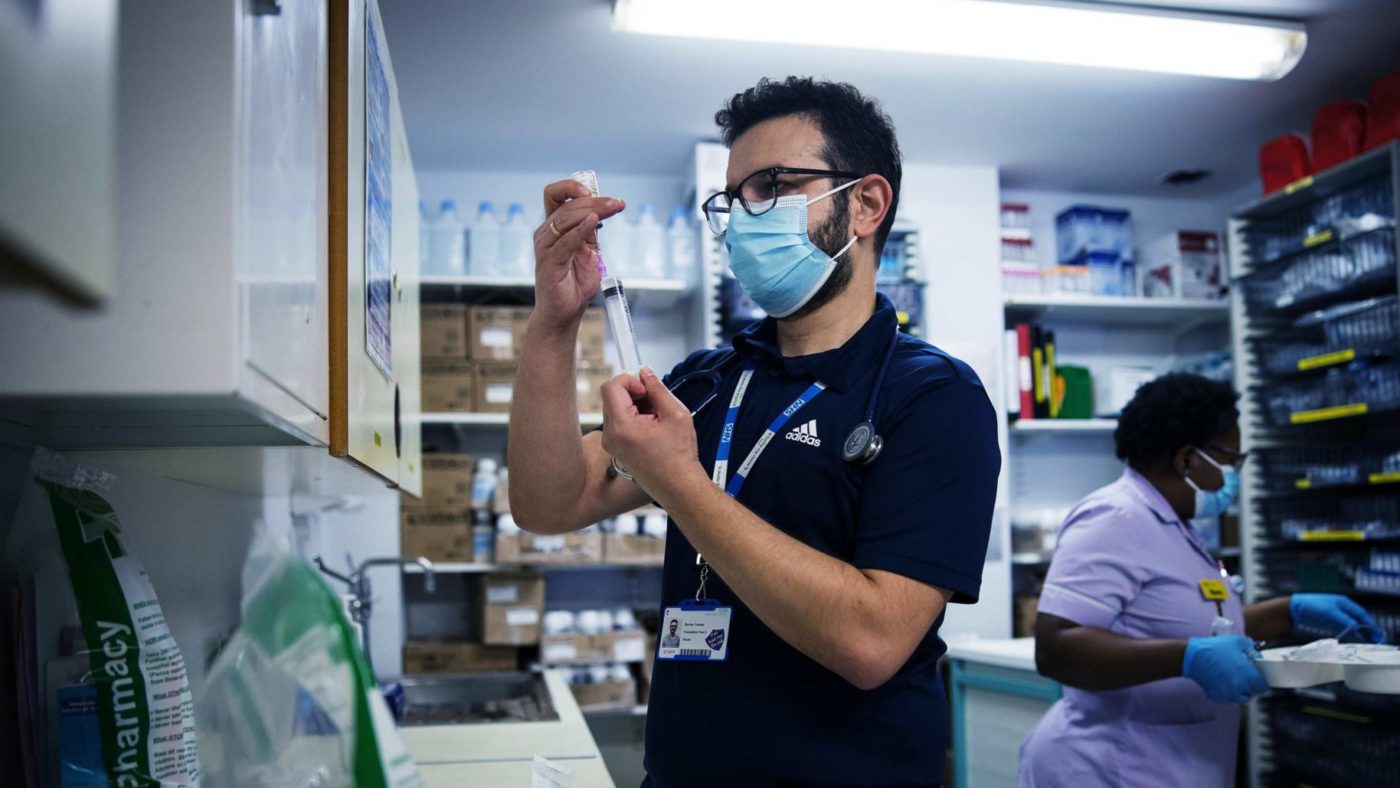In March, as coronavirus strengthened its grip on our lives and ravaged the health of our families, friends and neighbours, there was a clear message from government: we’re all in this together.
Yet policies and rules currently enforced by the same government are preventing asylum seekers who want to play – and penalising immigrants who are playing – a crucial role in this nation’s fight against Covid-19.
First, take asylum applicants desperate to work and contribute. They have been prevented from working in medical and care sectors where there are critical skills shortages.
Take Ghadaq, a 29-year-old doctor who lives in Manchester. She could be filling one of the 85,000 vacancies in the NHS. But she is not allowed to work because she has claimed asylum in the UK.
And then there’s Anju. Her situation is equally nonsensical. This highly trained care worker has been waiting nine years for a decision on her asylum claim after fleeing persecution in Bangladesh.
As it stands, Ghadaq and Anju can only apply to work after 12 months of waiting for a decision on their claim, and only then if they are qualified for a role on the highly restrictive Shortage Occupation List.
The result, in reality, is a ban on working for almost everyone in the asylum system. The Lift the Ban coalition, which includes Bright Blue and Refugee Action, has been calling for all asylum applicants who have been waiting more than six months for their claim to be processed to be allowed to work.
The Government dropped its target of processing 98% of “straightforward” asylum claims within six months in May 2019. Their immigration figures released last Thursday revealed about 45,000 people have now waited more than six months for a decision on their claim. That’s three in four applicants.
The policy on asylum applicants working has been under review since December 2018. The Prime Minister promised a rapid conclusion to the review in July 2019.
There is strong public support for a change to the current policy, both among all voters and those in ‘Blue Wall’ constituencies. New polling commissioned by Lift the Ban reveals 73% of voters in some of the tightest Conservative-held marginals, including 33 ‘Blue Wall’ constituencies, back the right to work after six months.
Calls for change unite pro-market economists and trade unions, the CBI and many businesses, the Church of England and other faith groups, recruiters and refugee organisations. Some 67% of business owners in the UK want people seeking asylum to be able to work after six months.
These organisations recognise the compelling case for change and the benefits it would bring to the UK, the Exchequer and those who are currently unable to contribute.
While regulation has stopped many people like Anju and Ghadaq from working and contributing, Covid-19 has also thrown into sharp relief the national contribution of the UK’s approximately one million foreign key workers.
These people, who are already working in the NHS and other critical sectors, are being heavily penalised with exorbitant fees and horrifyingly long wait times when they apply for UK citizenship.
As Bright Blue’s recent report outlined, gaining citizenship is materially and psychologically beneficial to immigrants and benefits the communities in which they live. It increases civic engagement, creates a sense of belonging and — particularly for the most disadvantaged immigrants — results in better job opportunities.
Yet, shamefully, the prohibitively high and profiteering nature of residency and citizenship fees charged by the Home Office may put this status beyond the grasp of many.
Britain has some of the highest citizenship fees in the world. An adult application costs £1,330, while for non-EU immigrants the price of naturalisation from start to finish, including applying for citizenship, is £3,719.
There is great public appetite for a reformed citizenship system that makes it quicker and cheaper for particular immigrants to become citizens, especially Covid-19 key workers.
Recent polling commissioned by Bright Blue found three in five people public think it is important for immigrants living permanently in the UK to become citizens.
A similar proportion think paths to citizenship should be quicker for NHS workers, while 55% think it should be sped up for Covid-19 key workers and half want it faster for those working in social care. Around three in four people said the costs of applying for citizenship should be cheaper for workers in key, frontline sectors, including these groups.
As the Covid-19 fight continues, we must overhaul the rules that make life unnecessarily hard for people who could bring – and do bring – such huge benefits to the UK. Lift the ban on asylum seekers who have been in the UK more than six months from working, and slash the costs and wait times for immigrants working in the NHS and other key sectors to gain citizenship.
Click here to subscribe to our daily briefing – the best pieces from CapX and across the web.
CapX depends on the generosity of its readers. If you value what we do, please consider making a donation.


